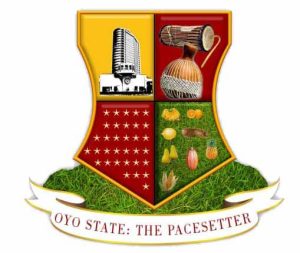NAMED AFTER A MOTHER, BUILT BY GRACE — THE LEGACY OF VICTORIA KITCHEN



What’s in a Name? A Tribute Etched in Flavor
When Chineye Edeh was prompted to name her new business, there was no second-guessing, no boardroom debate, no long list of alternatives. Just one name filled her heart and mind — Victoria. The name wasn’t just nostalgic — it was sacred. Victoria Kitchen is more than a business; it is a living tribute to a woman of quiet strength and generational influence — her mother, Mrs. Victoria, whose resilience and humility shaped the foundation on which the business now thrives.
“My mum is my role model. She went through a lot — financial difficulties, emotional hardships, and the complexities of raising children in a turbulent marriage. Yet, she kept us safe, clothed, and fed. She gave us not just meals, but memories — moments of joy, prayer, laughter, and hope,” the founder recalls, her voice filled with emotion.
Mrs. Victoria didn’t do it alone. Her siblings — aunties and uncles — stepped in to help where necessary. A tight-knit extended family gave the children a sense of rootedness and love, even in seasons of struggle. It was within this environment — forged by prayer, hard work, and unity — that the values of integrity, sacrifice, and service took root in the future entrepreneur.
To name the business Victoria Kitchen was not just branding — it was an altar of remembrance. It was saying: You may not have had a restaurant, Mama, but your life was our first taste of good food and great love.
A JOURNEY OF DEDICATION: THE STORY OF EDEH CHINENYE JESSICA
Born on the 7th of February, 1988, in Akpugo, Nkanu West LGA of Enugu State, Edeh Chinenye Jessica grew up with a quiet but determined resolve — to grow, to give, and to support humanity in every way she could. Her early years in Onitsha laid the foundation for her academic journey, beginning at Santa Maria Primary School, where she obtained her First School Leaving Certificate in 2001.
Fuelled by curiosity and a love for learning, she continued her education at St. Cyprian Special Science School, Nsukka, earning her West African Senior School Certificate (WAEC) in 2007. It was there her interest in the growing world of technology began to take root — a passion that would shape the next phase of her journey.
In pursuit of excellence and technical knowledge, Chinenye enrolled at the Institute of Management and Technology (IMT), Enugu, where she studied Computer Science. She first bagged an Ordinary National Diploma (OND) in 2012 and, driven by a desire to deepen her competence, she returned to complete her Higher National Diploma (HND) in 2015.
Along the way, she supplemented her classroom knowledge with practical skills, earning a certificate in Computer Applications from Mecxon Computer School the same year.
Her industrial training at Alo Aluminum Company (2012–2013) gave her firsthand experience in applying IT knowledge in a real-world setting. But Chinenye’s heart longed for more than just technical mastery — she yearned to serve.
This inner passion led her to the development sector. In 2015, she joined Happy Home Foundation, a non-governmental organization in Enugu, where she served with dedication. Her work revolved around supporting vulnerable groups, coordinating programs, and delivering hope to many.
During her National Youth Service Corps (NYSC) year from 2016 to 2017, she was posted to Succour and Development Service Initiative, continuing her humanitarian efforts with focus and compassion.
Following NYSC, Chinenye returned to Happy Home Foundation, where she worked until 2019 — years marked by growth, service, and the strengthening of her commitment to people-centered work.
Then came a new season.
In 2019, she stepped into entrepreneurship, founding Victoria’s Kitchen, a food business inspired by her mother’s legacy and her own culinary passion. What began as a small initiative soon blossomed into a platform not only for nourishment but also for empowerment, as she blended her business skills, integrity, and warmth to serve others in new ways.
Chinenye’s journey is one of consistent learning and meaningful impact — from the computer labs of IMT to the mission fields of NGOs, and now to the kitchens where food meets purpose. Through every step, her story reflects not just experience, but character, vision, and a heart that continues to work hard towards supporting the human person.
Food that Tastes Like Home — And Heals the Soul
The turning point came when customers began repeating the same phrase:
“This food tastes just like what my mother makes at home.”
At first, it was just a compliment. Then, it became a pattern. And soon, it transformed into a brand identity.
From those words came the tagline:
“Food That Feels Like Home.”
But what exactly makes Victoria Kitchen’s food feel like home? It’s not just the recipes — it’s the philosophy behind them:
Sourcing fresh, local ingredients from trusted markets.
Hand-prepping every component — from peeling to pounding, steaming to stirring — with intention.
Honoring traditional cooking methods, not shortcuts.
Serving every plate with joy, like Mama Victoria did — not out of obligation, but out of love.
The menu itself reads like a love letter to Nigerian culinary heritage:
Mornings
Crispy golden akara (bean cakes) made fresh every morning,
Served with pap (akamu) that’s smooth, rich, and warming.
Noons
Fluffy and vibrant jollof rice that never misses,
Creamy yam porridge with smoked fish,
Soft beans paired with fragrant rice and dodo.
Afternoons to Evenings
A rotation of hearty swallows — eba, semo, fufu —
Paired with soups like egusi, ogbono, oha, and bitterleaf, rich with meat, stockfish, and home-seasoned spice blends.
Extras
Occasionally, special native dishes — from Nkwobi to Ukwa (breadfruit) — are added, honoring ancestral recipes and regional flavors.
Grace Over Capital — The Story Money Can’t Buy Perhaps the most astonishing thing about Victoria Kitchen’s journey is that it didn’t begin with any of the usual business assets:
No capital investors.
No structured business plan. No formal training in culinary arts.
No modern kitchen equipment. Instead, it started with a prompting — a divine nudge — and a step of faith.
“I heard a voice in my heart. It was clear. It said, ‘Start small. I will help you.’ I obeyed.”
With just N1,400, she bought beans, oil, and a few ingredients to fry akara. She set up a small stand and waited. That morning, she sold everything. The next morning, she sold more. In weeks, customers were returning. In months, people started calling her “Nwanyi Akara” — a nickname that once felt small, but would later become a badge of honor. She didn’t despise the days of little beginnings. Instead, she: Reinvested profits into utensils, packaging, and hygiene. Documented customer preferences to refine her recipes. Listened to feedback with humility. Remained consistent through rainy days, low turnout, and fatigue.
Prayed. A lot. And stayed grounded in faith, even when it felt slow.
“Where others needed millions, I started with a whisper and N1,400. Grace is real. Obedience brings results,” she affirms.
From Nwanyi Akara to National Inspiration
Today, Victoria Kitchen is more than a roadside food stand. It’s a vision-in-motion. It’s expanding. People now call ahead to reserve food. New menu items are tested. Packaging is improving. Talks are ongoing for catering services and partnerships with event planners.
Social media platforms — like Instagram and Facebook (@VictoriaKitchenNG) — now feature daily menus, behind-the-scenes cooking clips, and customer testimonials.
What started as a humble akara sale is now: A recognized brand in the community,
A source of employment for kitchen staff and delivery helpers, A platform for storytelling, values, and inspiration. She still wears the name “Nwanyi Akara” with pride. But now, it means more — it means “the woman who obeyed God, fed people, and turned her kitchen into a kingdom.”
Words to the Dreamer
To others who have dreams but fear the unknown, her words are golden:
“Don’t overthink it. Just start. Start with what you have. Pray. Listen. Be faithful. Don’t wait for the perfect time. Let your passion meet purpose — that’s where provision flows.”
She encourages aspiring entrepreneurs not to obsess over what they lack but to recognize what they already have — a story, a skill, a community, and above all, a God who leads.
Victoria Kitchen — Victoria Homemade Food
Find Victoria Kitchen at Location 36 Nza street Independence Layout, Enugu
For orders or inquiries
Follow on Instagram: victorias_homemadefood
Motto: “Memorable and healthy food in a plate and sip”









